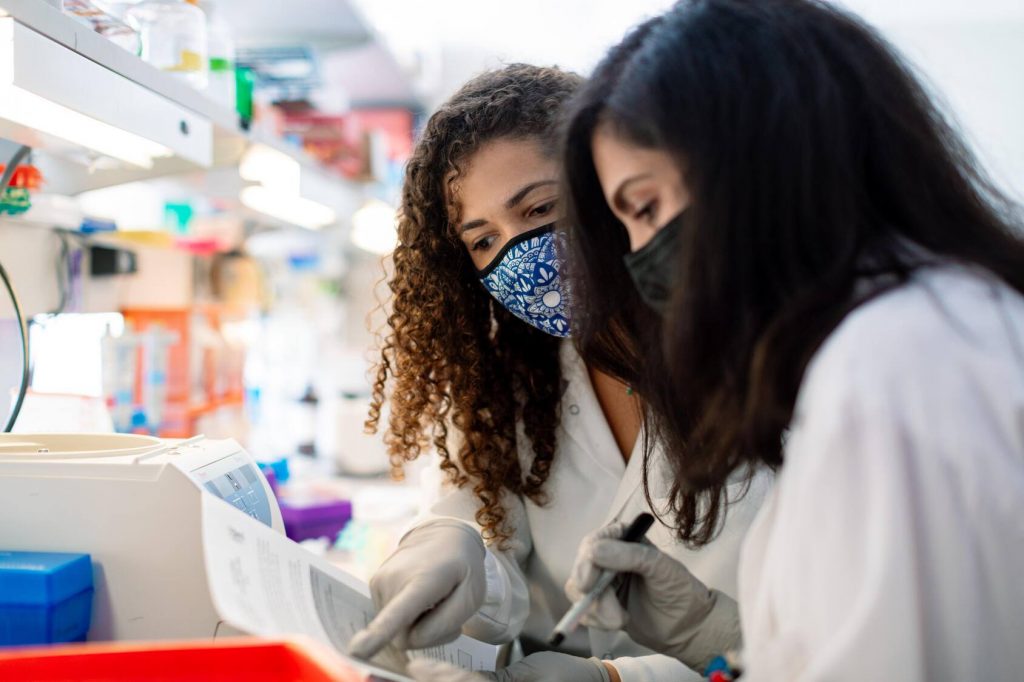-
Cancer
Commentary highlights reasons for lack of diversity in cancer research

ROCHESTER, Minn. — A commentary by researchers from Mayo Clinic and the University of Southern California suggests that agencies funding biomedical research must strive for diversity, equity and inclusion in research decisions, and that these agencies will only be successful if they address bias in the research funding process. The commentary is published in Nature Medicine.
"The lack of diversity in science and medicine exacerbates and compounds the problem of health disparities," says Folakemi Odedina, Ph.D., a Mayo Clinic cancer researcher. Dr. Odedina's education, training and community outreach activities have focused on addressing health disparities in racial, ethnic minority and underserved communities.
Dr. Odedina and co-author Mariana Stern, Ph.D., of the University of Southern California write that the relatively small number of minority clinicians and researchers in biomedical research in the U.S., and the lack of minority participants in clinical trials, poses significant barriers to addressing health disparities. For example, "Black investigators continue to be underfunded in science and medicine due to bias in the scientific review process," says Dr. Odedina. She says multiple reasons have been associated with this bias, including a perception that Black investigators are less capable or less accomplished than White or Asian candidates.
The authors say another factor limiting diversity in biomedical research is a misalignment between the priorities of funding agencies and the research focus of scientists from underrepresented groups. "Funding decisions that do not appropriately weigh the potential impact of awards on minority communities or the importance of promoting the careers of diverse scientists ― Black, Latinx and Indigenous ― miss the opportunity to improve diversity, equity and inclusion in science and medicine, and improve the health of minority communities," says Dr. Odedina.
Dr. Odedina says funding organizations can play a critical role in addressing diversity and equity issues in medical research. "They can start by addressing diversity among their own staffs by prioritizing health disparities research when developing funding opportunities and by making funding decisions that address health disparities and promote scientists from underrepresented groups."
Dr. Odedina says bias toward Black scientists in academic funding has led many to switch to academic administrative positions or to leave academia altogether, as it is very difficult to be successful without extramural funding. "In the U.S., there is a nationwide problem retaining Black scientists in academia," says Dr. Odedina. She says the downstream effect of this problem is fewer Black scientists in academia and biomedical research, as the pipeline continues to decrease.
Dr. Odedina says that efforts to ensure a well-trained, racially and ethnically diverse workforce in science and medicine will effectively and respectfully help deliver health care interventions for diverse populations and help eliminate health disparities.
###
About Mayo Clinic Cancer Center
Designated as a comprehensive cancer center by the National Cancer Institute, Mayo Clinic Cancer Center is defining new boundaries in possibility, focusing on patient-centered care, developing novel treatments, training future generations of cancer experts, and bringing cancer research to communities. At Mayo Clinic Cancer Center, a culture of innovation and collaboration is driving research breakthroughs that are changing approaches to cancer prevention, screening and treatment, and improving the lives of cancer survivors.
About Mayo Clinic
Mayo Clinic is a nonprofit organization committed to innovation in clinical practice, education and research, and providing compassion, expertise and answers to everyone who needs healing. Visit the Mayo Clinic News Network for additional Mayo Clinic news. For information on COVID-19, including Mayo Clinic's Coronavirus Map tracking tool, which has 14-day forecasting on COVID-19 trends, visit the Mayo Clinic COVID-19 Resource Center.
Media contact:
- Joe Dangor, Mayo Clinic Public Affairs, newsbureau@mayo.edu







